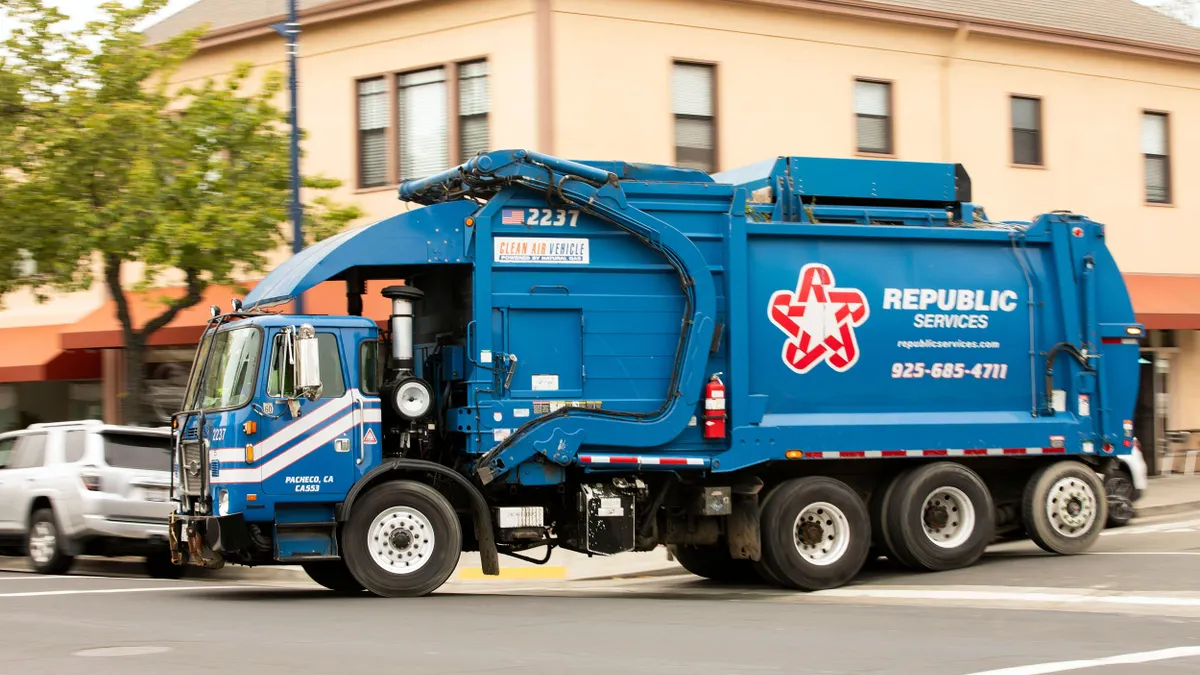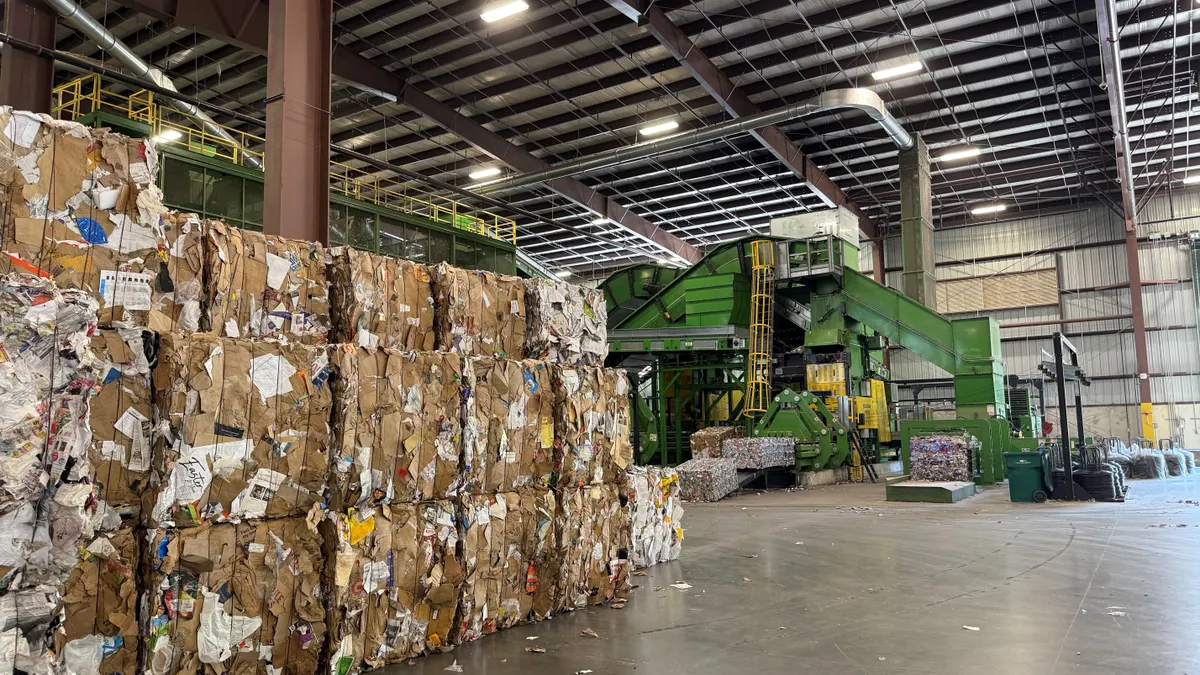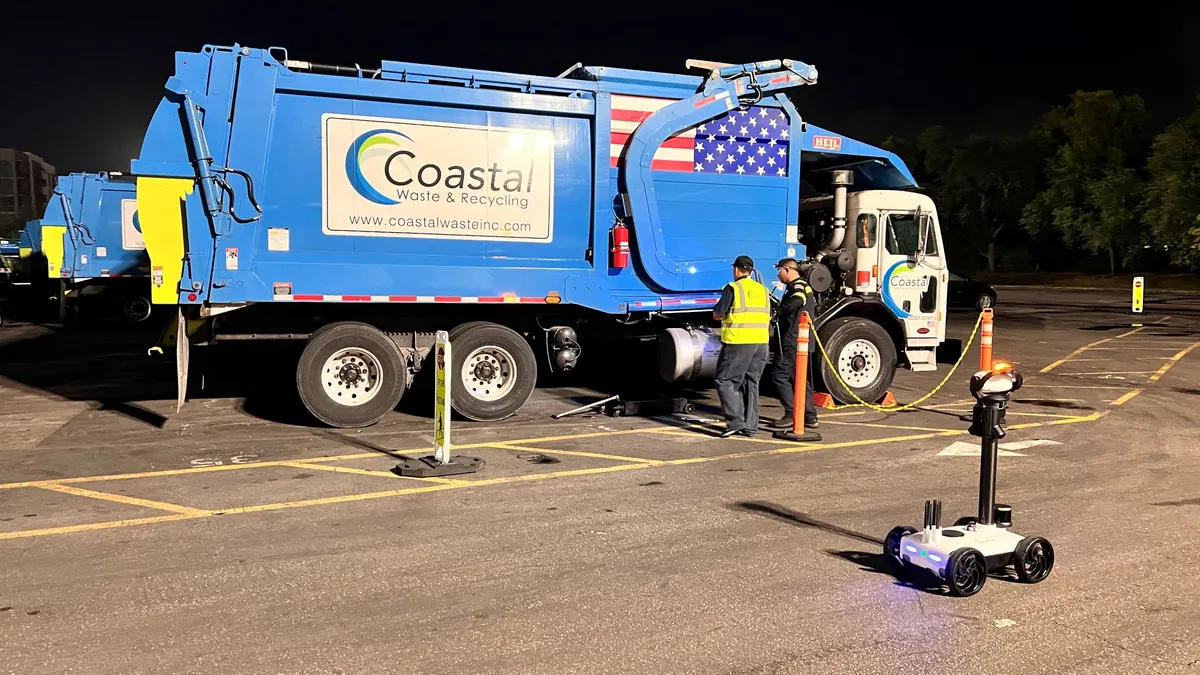After much anticipation, legislation set to be introduced in the New York City Council today will outline a plan for commercial waste zones. The bill's text is expected to run counter to a non-exclusive concept backed by the city's Department of Sanitation (DSNY), putting the agency – and the local industry – in an unexpected position.
While industry groups such as the NWRA's local chapter and New Yorkers for Responsible Waste Management remain opposed to a franchise zone system of any kind, it had long been anticipated that DSNY would be on the same page as bill sponsor Antonio Reynoso once the process reached this critical juncture. Instead, an exclusive model backed by the Transform Don't Trash labor and environmental coalition appears to have won out.
Each of the two options is seen as having various merits when it comes to achieving the logistical, environmental and labor goals envisioned. First, however, all involved need to see the contents of the bill, which could initiate the biggest change to the city's commercial waste industry since the 1990s organized crime crackdown. If it can't pass, or somehow passes without support from Mayor Bill de Blasio's administration, the years of work that have led up to this point could hit a dead end.
Reynoso, chair of the council's sanitation committee, plans to introduce the bill today. His office declined to comment, aside from a joint press release with the Teamsters about a city hall rally. Teamsters Local 813, often a proxy for the TDT coalition, also declined to comment on the bill's contents.
Crain's New York, citing an anonymous source, first reported last Friday that Reynoso's bill would outline a plan for exclusive zones. The New York Post editorial board also referenced an exclusive zone system in a column this week opposing the bill. Per Waste Dive's conversations with multiple sources, these plans appear to now essentially be an open secret.
Weighing their options
The exclusivity question has become one of the primary flashpoints in the multi-year process that laid the groundwork for this legislation.
After initially considering exclusive zones – a more common approach in other cities – DSNY has now backed a non-exclusive compromise model for approximately a year. TDT and various advocates believe an exclusive system is the best way to reduce truck traffic – and potentially create more favorable conditions for labor organizing. DSNY, per a legally-required draft environmental impact statement (EIS) released earlier this year, found an exclusive system could have additional financial and logistical benefits. However, the agency also determined that an exclusive system could lead to higher pricing, reduced customer satisfaction and "substantial" logistical challenges.
A zone system of either flavor would be undeniably disruptive to the local industry. However, as the legislation's passage begins to feel inevitable (to some), players of various sizes are seeing better paths to survive and capitalize.
New York's two largest service providers – Action Environmental and Waste Connections – are poised to benefit the most from an exclusive system. While Action would prefer to improve the current open market system, CEO Ron Bergamini has stated multiple times he believes exclusive is the most logical approach in a zone scenario. Waste Connections executives have also repeatedly reiterated support for exclusive franchising. Last year, CEO Ron Mittelstaedt also told Waste Dive this was a key reason for choosing to stay in the market after acquiring Progressive Waste Solutions.
Haulers ranging from some of the largest operators to those with a few trucks view the exclusive model with more wariness. Multiple other companies contacted by Waste Dive declined to share their stances or did not return requests for comments.
"Exclusive is like being hit in the head with a bat and non-exclusive is like being punched in the stomach. If I'm forced to choose between the two, I guess I'd take the punch in the stomach," said Tom Toscano, president of Mr. T Carting.
Toscano believes an exclusive system would make it even easier for major players to dominate – pending the details of Reynoso's bill – whereas "in nonexclusive, I think, you're less likely to have outsiders bid in."
DSNY Commissioner Kathryn Garcia – currently on an extended leave of absence to temporarily run the New York City Housing Authority – told Waste Dive last year that the goal was to design a system for local companies. Waste Management CEO Jim Fish has previously expressed hesitance in bidding on a potential New York zone, but didn't rule it out. While it no longer has local collection infrastructure, Waste Management owns or operates multiple transfer station assets in the city.
For companies smaller than Mr. T, which may have trouble winning out in either scenario, another alternative could be to join together and bid as a consortium. This could potentially be done under the umbrella of existing city-registered "trade waste brokers," such as Rubicon Global or Recycle Track Systems (RTS). While initially viewed as at risk of losing out in any zone scenario, these brokers may also have the opportunity to bid on contracts for routing and sustainability tracking technology used by winning service providers.
Still, many view such talk as too speculative, given the fractured positions among stakeholders going into the legislative process.
"The concern is that DSNY and the council member are worlds apart," said RTS CEO Greg Lettieri. "How do we move forward if the two biggest shareholders don't agree and the entire business community doesn't agree?"
Next steps
Once the bill is introduced, a sanitation committee hearing is expected to be scheduled as soon as next month ahead of what some believe could be a June 26 vote by the full council. A final version of the city's EIS is required before that can happen. More will be known about the administration's position as this unfolds, but it isn't expected to respond to pressure from Reynoso and advocates readily.
"I expect DSNY to oppose an exclusive franchising bill," wrote SWANA CEO David Biderman via email. "The Sanitation Department has spent a lot of time and money developing a different approach that provided transparency and included input from a wide variety of stakeholders, including some of the advocacy groups that are supporting Council Member Reynoso's proposal. For them to undercut the Sanitation Department's efforts at this late date is unfortunate."
Asked to comment on the likelihood of this new bill calling for exclusive zones, DSNY largely reiterated prior points.
"A non-exclusive system achieves very similar efficiency and emissions improvements compared to an exclusive system, while avoiding the large disruption to the market and customers that would come with having only one carter per zone," wrote DSNY Director of Communications Belinda Mager via email. "Most importantly, customers overwhelmingly prefer a non-exclusive model, as they want the ability to shop around and fire their carter if their service needs are not met."
Various sources backing each potential angle – exclusive, non-exclusive or no plan at all – have often attempted to lay claim to business community support. So far, however, consensus remains elusive. The Partnership for New York City, an influential business group, recently came out against exclusive zones in the Crain's article. Smaller trade groups, chambers of commerce and other entities have previously voiced concern with the process as a whole.
"The New York State Restaurant Association is firmly against an exclusive model for New York City’s proposed zoned system for commercial waste removal. This would only cause market disruption and lead to the creation of a government-awarded monopoly, stripping any element of competition and choice for restaurants in the city," wrote the association's president and CEO, Melissa Fleischut, in a statement. "While we appreciate that this proposed model includes holding bidders to the maximum price points suggested in their proposals, we urge the city to only consider a non-exclusive model."
If the business community were to unite around one approach and lobby accordingly, that could be a decisive factor in swaying the full council's decision.
In response to a follow-up on DSNY's claim of business support, Mager cited numerous stakeholder meetings with business groups but didn't specify the participants.



















